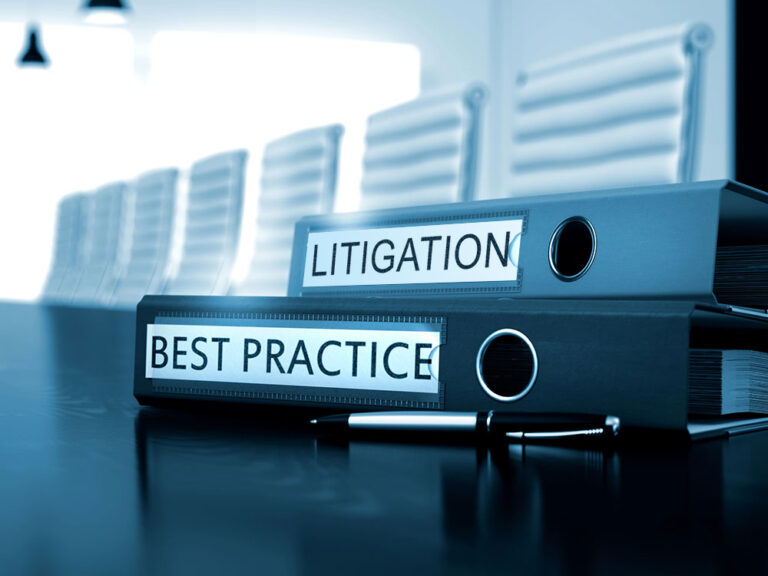
Preparing for Litigation: Best Practices for Corporate Clients
Understanding Litigation for Corporate Clients
Litigation can be a complex and resource-intensive process, particularly for corporate clients. Whether the matter involves a breach of contract, intellectual property dispute, or regulatory compliance issue, companies must be prepared to navigate the legal system effectively. Early preparation and strategic planning are essential to protecting your business’s interests and mitigating potential risks.
Key Best Practices for Corporations Facing Litigation
To position your company for a successful litigation outcome, consider these best practices:
- Document Preservation: Maintain detailed records and preserve all relevant documentation, including emails, contracts, and communications. This will be critical during the discovery phase.
- Clear Internal Communication: Educate employees on the importance of confidentiality and the need to follow legal guidance when discussing the case.
- Legal Representation: Engage experienced legal counsel early to assess the case, identify risks, and develop a strategy tailored to your business’s goals.
- Stakeholder Alignment: Ensure all internal stakeholders, including executives and department heads, are aligned on litigation objectives and the potential impact on operations.
- Cost Management: Work with your legal team to set realistic budgets and explore alternative dispute resolution options, such as mediation or arbitration, to control costs.
The Litigation Process for Corporate Clients
Litigation typically begins with a thorough case assessment, during which your legal team will review the facts and applicable laws to develop a strategy. Once the complaint is filed, the case enters the discovery phase, where both parties exchange information through depositions, interrogatories, and document production.
Pre-trial efforts, such as settlement negotiations or mediation, may resolve the matter without proceeding to court. However, if a resolution cannot be reached, the case will move to trial or arbitration. At each stage, your legal counsel will guide you in making informed decisions to protect your company’s interests.
The Importance of Collaboration Between Legal Counsel and Corporate Clients
Corporate litigation requires close collaboration between the legal team, the key stakeholders, and the company. Your attorneys rely on accurate and timely information to build a strong case. Likewise, clear communication with your legal counsel helps you manage expectations and ensure compliance with legal requirements.
Robinson & Lawing’s Services for Corporate Litigants
At Robinson & Lawing, LLP, our attorneys are experienced in representing corporate clients in complex litigation matters across North Carolina. We provide proactive legal guidance and effective advocacy, working closely with businesses to address their unique challenges. Our team includes:
With a deep understanding of North Carolina’s legal system, our attorneys are well-equipped to handle a wide range of corporate litigation matters.
Local Counsel Services for Corporate Clients
For out-of-state corporations involved in North Carolina litigation, Robinson & Lawing offers comprehensive local counsel services. Our attorneys provide seamless collaboration with general counsel or out-of-state law firms, ensuring compliance with local rules and protecting clients’ interests in state and federal courts.
Entrust Your Corporate Litigation Needs to Robinson & Lawing
Preparing for litigation requires foresight, strategic planning, and skilled advocacy. At Robinson & Lawing, LLP, we are committed to guiding corporate clients through every stage of the litigation process, ensuring their business interests are protected and their objectives achieved. Contact us today to discuss how we can assist your company.
We strive to keep our content as current as possible. The information in this post is accurate as of its publication date and may not reflect subsequent legal developments.

